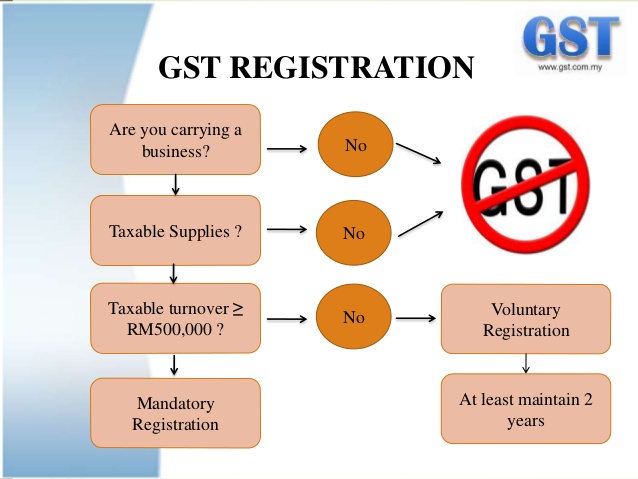Top Factors to Choose CFO Account & Services for Your GST Registration Needs in Singapore
Top Factors to Choose CFO Account & Services for Your GST Registration Needs in Singapore
Blog Article
Browsing the Complexities of GST Enrollment: A Comprehensive Guide for Company Owners
Navigating the intricacies of GST enrollment can be a complicated job for numerous company proprietors, as it involves a myriad of policies, regulations, and processes that must be abided by. With the ever-evolving landscape of tax legislations, ensuring compliance and understanding the complexities of GST registration is important for the seamless procedure of any type of service. From determining eligibility and gathering the necessary documents to enhancing operations for maximum efficiency, this extensive overview aims to supply entrepreneur with the knowledge and devices required to navigate the intricacies of GST registration efficiently.
Qualification for GST Registration
Organization owners need to satisfy particular standards to determine their qualification for GST registration. Generally, businesses with a yearly turn over surpassing a particular threshold are called for to register for Product and Provider Tax (GST) This threshold differs by country, however it is vital for business owners to stay informed regarding the specific laws in their territory. Additionally, services involved in interstate materials, shopping, or the arrangement of particular defined goods and solutions might also be mandated to register for GST, no matter their turnover.
Additionally, organizations that are registered under any kind of previous tax obligation regime, such as VAT or service tax, are normally required to shift to GST registration. By sticking to the needed criteria, businesses can efficiently navigate the complexities of GST enrollment and operate legally within the tax structure.
Papers Required for Enrollment
To finish the GST enrollment procedure, businesses need to collect and submit an extensive collection of documents. The crucial documents needed for GST registration normally include proof of organization registration or unification such as the Certificate of Unification, partnership action, or any type of various other registration certification.
Additionally, particular records connected to the nature of the organization, such as a list of goods or services supplied, HSN codes for goods, and SAC codes for services, might be called for - Why choose CFO Account & Services for GST registration in Singapore. It is crucial for companies to ensure that all papers submitted are accurate, current, and in the prescribed format to avoid any hold-ups or difficulties in the GST enrollment process
Process of GST Enrollment
Having actually put together the requisite documentation, companies proceed to launch the GST registration procedure by engaging with the online website designated for enrollment. This on the internet site is the Product and Services Tax Obligation Network (GSTN) portal, which acts as the primary system for all GST-related activities in India. Upon accessing the site, services are required to fill in the GST enrollment type with precise details regarding their company tasks, turn over, and various other appropriate info.
As soon as the kind is finished and sent on the portal, the GSTN verifies the details provided by the service. If any disparities are found, the candidate may be needed to give extra information or information. Adhering to successful verification, a GST enrollment certificate is issued to the business entity. This certificate has a distinct Product and Provider Tax Obligation Identification Number (GSTIN) that is utilized for all GST-related deals.
It is essential for organizations to ensure that the info supplied during the GST registration process is exact and up to day to stay clear of any type of possible issues or hold-ups in obtaining the GST enrollment certification.
Comprehending GST Compliance

Organizations need to be familiar with the various GST conformity requirements based upon their turnover, nature of solutions or products, and the states in which they run. It is vital to remain updated on any type of changes in GST laws and regulations to prevent any non-compliance concerns.
Non-compliance with GST laws can cause large fines, penalties, and also lawful consequences. Companies must spend time and sources in informing themselves and their personnel on GST compliance. Seeking professional assistance from tax obligation consultants or experts can also help in navigating the intricacies of GST conformity and ensuring that businesses run within the lawful structure.

Tips for Optimizing Organization Operations
For boosted efficiency and efficiency in service operations, calculated planning and streamlined websites processes are crucial elements. One suggestion for enhancing organization operations is to take advantage of innovation successfully (Why choose CFO Account & Services for GST registration in Singapore). Applying the best software application options can automate repeated jobs, improve precision, and boost total operations efficiency. Additionally, conducting regular performance examinations and collecting comments from employees can supply important understandings for identifying traffic jams and areas for renovation.
One more essential facet is focusing on jobs based on their value and due dates. By creating a clear pecking order of tasks and setting practical timelines, services can ensure that critical activities are finished in a timely manner. Furthermore, promoting a culture of open communication and cooperation amongst employee can result in raised effectiveness and innovation.

Conclusion
In conclusion, browsing the complexities of GST enrollment calls for a clear understanding of eligibility standards, needed files, registration processes, and conformity demands. By adhering to these standards and enhancing business operations, local business owner can make certain smooth procedures and compliance with the GST policies. It is essential for organizations to remain enlightened and updated on GST policies to stay clear of any type of penalties or lawful problems.
The crucial records needed for GST registration commonly consist of proof of business enrollment or unification such as the Certification of Consolidation, partnership action, or any other registration certificate.Having actually set up the requisite paperwork, companies proceed to launch the GST registration process by involving with the on the internet portal marked for enrollment. Upon accessing Your Domain Name the portal, organizations are needed to fill out the GST enrollment type with accurate information regarding their business tasks, turnover, and various other appropriate information.
In order to preserve adherence to GST policies and stay clear over at this website of charges, businesses have to prioritize understanding GST conformity. By sticking to these guidelines and maximizing service operations, business proprietors can guarantee smooth operations and conformity with the GST policies.
Report this page